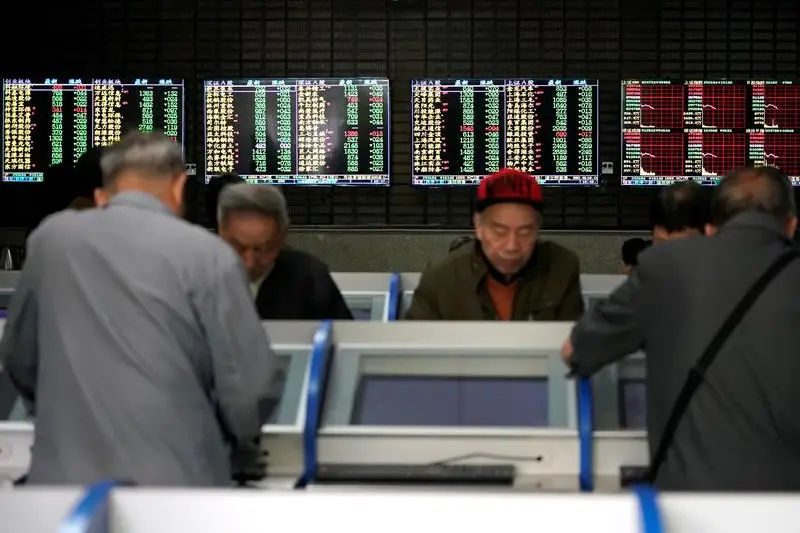PHOTO
SINGAPORE/BOSTON: Asian stock markets rose on Tuesday on relief that another round of Sino-U.S. sparring appears not to have spilled over into trade, while hopes for U.S. stimulus lent support to oil and commodity currencies.
MSCI's broadest index of Asia-Pacific shares outside Japan was last up 1%. Japan's Nikkei returned from a holiday with a 1.7% gain led by healthcare and industrial stocks and the Hang Seng bounced 2.2%.
The risk-sensitive Australian and New Zealand dollars each lifted about 0.3%, although they sit comfortably below recent milestone peaks as some trepidation muted their rise.
Investors are awaiting a meeting between top U.S. and Chinese trade officials on Saturday to review the first six months of the Phase 1 trade deal.
With China lagging far behind on energy and farm goods purchases from the United States, it could test markets' assumption that the trade relationship is insulated from crumbling diplomatic ties between the two nations.
Yet there was palpable relief on Tuesday that China's sanctions on 11 U.S. citizens - a response to U.S. sanctions on Chinese individuals over Beijing's crackdown in Hong Kong - seemed to shut off the latest round of tit-for-tat moves.
"It has left the White House untouched," said Vishnu Varathan, head of economics at Mizuho Bank in Singapore.
"That gives some relief that China is still giving some priority to the (trade deal) dialogue," he said. "It's just the sense that you're not rocking the boat to the point of capsizing, that is the low bar today."
Safe havens were under gentle pressure across the board. Gold slipped about 0.6% to $2,015 an ounce and the U.S. bond market extended a recent selloff, with the yield on benchmark 10-year Treasuries at a two-week high of 0.5870%.
ONWARDS AND UPWARDS
Overnight Wall Street found some support after Trump signed executive orders to partly restore unemployment benefits after talks between the White House and top Democrats about fresh stimulus broke down last week.
The Dow rose 1% and the S&P 500 inched ahead, while the Nasdaq sold off a little as investors trimmed some tech holdings in favour of value stocks.
The S&P 500 now sits less than 1% below a record high hit in February, while in Asia the MSCI ex-Japan index is within 2% of a January all-time peak.
The moves have pushed valuations in Asia to precipitous highs, about 20% above post financial crisis averages. But Nomura's Jim McCafferty in Hong Kong said the lofty levels are justified by an enormous shift in investor preferences.
"The composition of stock market indices across the region has dramatically changed," he said. "Oil, telcos and banks used to dominate ... now it is internet and tech."
S&P 500 futures ESc1 rose 0.3% and oil traded firmly on hopes that a U.S. stimulus deal may yet be struck and anticipation of rising demand in Asia.
Brent crude futures were last up 0.4% at $45.16 a barrel and U.S. crude rose 0.6% to $42.18.
Besides the Aussie and Kiwi, other major currencies made very marginal gains on the dollar while the yen inched lower.
The euro last bought $1.1746 and the yen traded at 106.02 per dollar.
Chinese credit figures are due this week, while British labour data and a German sentiment survey due at 0830 GMT and 0900 GMT respectively will provide the latest reading on Europe's recovery.
Investors are expecting British unemployment to have hit 4.2% in June and German economic sentiment to hold broadly steady.
(Reporting by Tom Westbrook in Singapore and Lawrence Delevigne in Boston; Editing by Sam Holmes and Richard Pullin) ((tom.westbrook@tr.com; +65 6318 4876;))
((To read Reuters Markets and Finance news, click on https://www.reuters.com/finance/markets For the state of play of Asian stock markets please click on: 0#.INDEXA ))





















